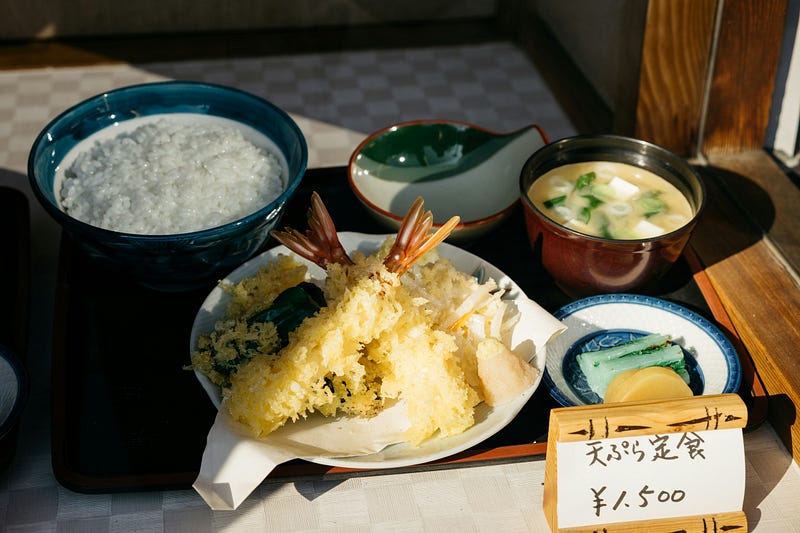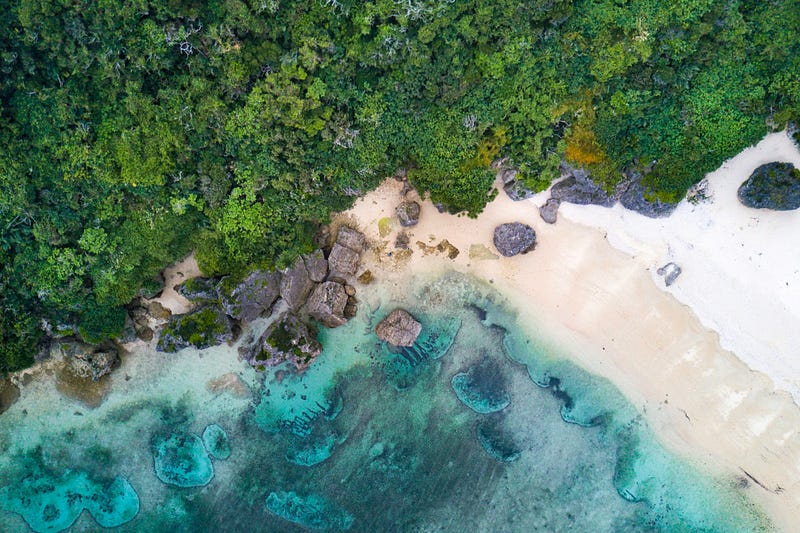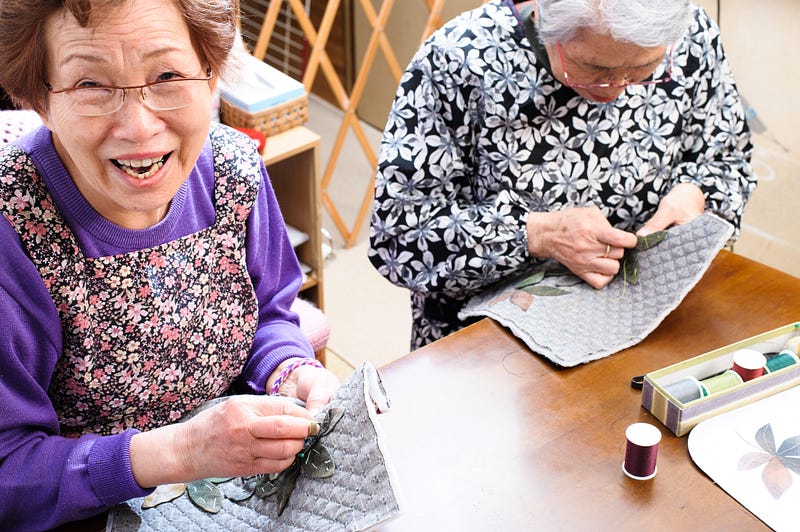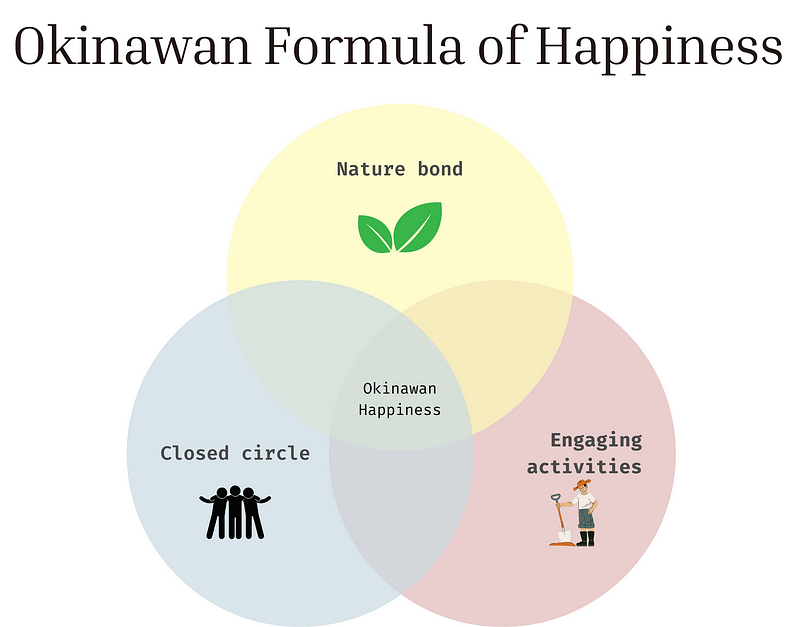The Okinawan Happiness Formula: Secrets to Longevity and Joy
Written on
Chapter 1: Emiko's Garden and Okinawa's Serenity
As the first rays of sunlight break over Okinawa, a quaint island in Japan, a ninety-year-old grandmother named Emiko rises to tend to her beloved plants. Her garden, a vibrant tapestry of flowers and greenery, serves as both a source of nourishment and a sanctuary for the community.
Each morning, Emiko prepares a wholesome breakfast, crafting homemade miso soup with fresh ingredients from her garden—green onions, tofu, and a hint of seaweed. For lunch, she gathers colorful vegetables like carrots, radishes, and tomatoes, along with savory shiitake mushrooms.

Beyond nourishment, Emiko's garden acts as a refuge for friends and neighbors, where they find solace in her warm presence. While Emiko's tale is fictional, it reflects the reality of many elderly residents in Okinawa, who live in harmony with nature.
In Dan Buettner's book, The Blue Zones Solution, he recounts encounters with numerous Okinawans, including 104-year-old Gozei Shinzata, who continues to cook and garden daily. Japan is renowned for its high number of centenarians, topping the 2022 life expectancy charts at an impressive average of 84.5 years.
Yet, contrasting the longevity statistics, the 2023 World Happiness Report places Japan at a modest 47th, trailing countries like Mexico. This raises an intriguing question: are the Japanese living long lives filled with sadness?
Scientific studies suggest that a long life is closely tied to happiness. As George Burns wisely noted, avoiding stress and worry is crucial to longevity. So, what are the Okinawans' secrets to a fulfilling, lengthy life?
A brief exploration reveals various factors contributing to their happiness, such as ikigai (a sense of purpose), a nutritious diet, and strong community support through moai groups. However, these elements are part of a broader happiness formula.
To understand the Okinawan way of life, we must delve into the historical and geographical context of the Ryukyu Islands.
Chapter 2: The Ryukyu Islands and Their Unique Heritage
The Ryukyu Islands, extending from Kyushu to Taiwan, are home to Okinawa, the largest island in the archipelago. Historically, the Ryukyu Kingdom flourished as an independent entity, maintaining its distinct culture and trade routes until becoming a vassal state of Japan in 1609.
Despite the influence of larger cultures, Okinawans have retained their core values and ancestral traditions, distinguishing themselves from their mainland counterparts. How do these historical influences contribute to their unique lifestyle that promotes health and well-being?
Section 2.1: A Deep Respect for Nature
Okinawa's breathtaking landscapes and rich ecosystems foster a profound respect for nature among its inhabitants. This reverence for the environment is ingrained in their agricultural and spiritual practices, leading to sustainable living.
Many elderly Okinawans actively engage in gardening, cultivating their own vegetables and minimizing reliance on processed foods. The principle of Nuchi gusui, or “Let food be your medicine,” underscores their belief in the body's sanctity and the importance of a balanced diet.

Through rituals and ceremonies, Okinawans honor their land, reinforcing their connection to a safe and nurturing environment.
Section 2.2: The Yuimaru Concept
A lesser-known aspect of Okinawan culture is yuimaru, which emphasizes community support and interconnectedness. This social framework often manifests in small groups, known as moai, typically consisting of five to six individuals who look after one another.
This tight-knit support system fosters a sense of security and belonging among the elderly, who may lack nearby family. Regular gatherings allow friends to connect, share, and uplift one another, creating a vital social network.

Section 2.3: Embracing Outdoor Activities
The tropical climate of Okinawa encourages residents to spend time outdoors, engaging in leisurely pursuits such as beach outings and gardening. This lifestyle reduces stress and enhances overall well-being.
Research links time spent in nature to improved mood and health. Okinawans naturally integrate these benefits into their daily lives, enjoying sunlight that boosts vitamin D levels critical for physical and emotional health.
Introducing Okinawa - YouTube: Explore the enchanting landscapes and cultural richness of Okinawa. Discover how its environment contributes to the happiness of its residents.
Chapter 3: The Okinawan Happiness Formula
The essence of Okinawan happiness lies in their approach to life, encompassing diet, social structures, and an appreciation for nature. But how can we adopt this formula for our modern lives?
Section 3.1: Cultivating a Connection with Nature
In today's world, people increasingly disconnect from nature, spending time in artificial environments and consuming processed foods. Okinawans counter this trend by cultivating a deep respect for their surroundings, enjoying the bounty of their land.
Nature not only provides sustenance but also mental relief from stress and depression. Okinawans recognize the healing power of the natural world, treating it as a sacred gift.
Section 3.2: Building Close-Knit Social Circles
As we age, our social circles often stabilize. In Okinawa, elderly individuals form tight-knit moai groups that foster deep connections. Maintaining a small circle of trusted friends enhances feelings of safety and support.
This strong sense of community is pivotal for Okinawans, offering emotional and practical assistance throughout their lives.
Section 3.3: Engaging in Meaningful Activities
True engagement goes beyond screen time. Okinawans participate in activities like walking, gardening, or playing instruments, all of which promote mental well-being.
The Japanese practice of shinrin-yoku, or “forest bathing,” exemplifies the importance of immersing oneself in nature for overall health.
Into the forest I go, to lose my mind and find my soul — John Muir

Conclusion: The Harmony of Okinawan Happiness
A peaceful life in Okinawa is characterized by balance with nature, supportive social circles, and active engagement in life.
By embracing these principles, we can cultivate our happiness formula.
Hello, I'm Nam, and I invite you to join the quest for happiness. Together, let's discover the blueprint for a fulfilling life: http://eepurl.com/iIr1aE
8 Simple Japanese Habits That Will Make Your Life So Much Better!! - YouTube: Uncover easy and effective habits from Japanese culture that can enhance your happiness and well-being.